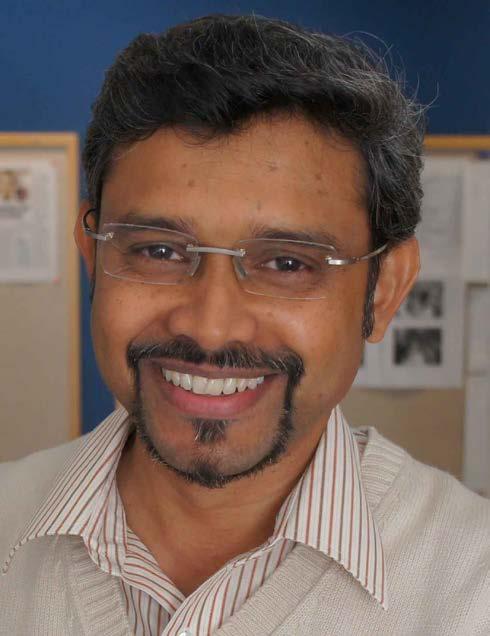12
E V E N T R E P O RT
Event Report: ASM Science Communication Workshop by Kong Yink Heay
T
he “Science Communication Workshop: Science needs a new language” on the 14th of November 2013 was held in conjunction with the World Innovation Forum KL 2013 at the KL Convention Centre, Kuala Lumpur. This workshop was organised by the Academy of Sciences Malaysia (ASM) and the British High Commission. Approximately 30 participants from ASM, Petrosains and Malaysian Biotechnology Information Centre (MABIC) attended this workshop. Its aim was to connect the ‘why’s’ and ‘how’s’ to more effectively communicate science with the public. The workshop was officiated by a senior fellow of ASM, Prof. Ho Chee Cheong (Universiti Tunku Abdul Rahman). In the opening speech, he said, “Science communication is important because it can generate public awareness on scientific findings and knowledge. Furthermore, the public needs to be in the know. However, scientists tend to use jargons to express science which could be alien language to the public. Therefore, scientists need strong language skills to communicate science to the public more effectively. As there is decreasing number of people who gain information from printed media, science communications should be raised to the next level to deliver the message to every strata of the society”. In this workshop, speakers from the UK were invited to cover four main topics in science communication: “Science in news media”, “Public engagement targeting students”, “Public engagement targeting the public”, and “Discussing science policy with the people”. Science in news media Dr. Fiona Lethbridge (UK Science Media Centre) shared her role in getting scientists and journalists to talk to each other so that the public have access to the best expertise. The UK Science Media is responsible for collecting questions from journalists, and getting scientifically correct answers from scientists. For this reason, the centre maintains an enormous database that documents approximately 3000 scientists. The centre also invites journalists from all newspapers and relevant scientists to meet in their media briefings twice/thrice a week where journalists can ask questions to the scientists regarding a specific topic. The aim of the briefing is to ensure
the scientific information is sent across accurately, not only to reduce inaccurate reports but also to prevent reporting false hope and misleading headlines. Media briefings can be divided into news briefing and background briefing. News briefing is held based on new research findings in journals (e.g. stem cell could cure deafness) while background briefing is held based on emerging news or controversial findings (e.g. the horsemeat crisis). Public engagement targeting students Dr. Gale Cardew from the Royal Institute (RI) described hands-on strategies for educators to make science appealing to students. RI’s activities centers around the core aim of encouraging people to think further and more deeply about the wonders and application of science. For instance, RI is known for its Christmas Lecturesa, which is a series of science lectures presented in an informative and entertaining manner aimed at general audience. In 2009, RI launched the L’Oreal Young Scientist Centre, where youngsters are encouraged to have more hands-on experience on science subjects. Dr. Gale explained that in regular classrooms, students carry out scientific experiments based on only given guidelines and they have no freedom to do other experiments. The centre encourages the youngsters to try something new, to fail and to think for themselves. RI also has Maths and Engineering Master classes on every Saturday morning where approximately 1000 teachers, mathematicians and engineers expose youngsters to the world of maths and engineering. RI also trains engineers and mathematicians on how to teach their subjects to the youngsters.
Christmas Lectures was initiated by Michael Faraday in 1825 and has been ongoing ever since. Christmas Lectures is available online at the RI Channel http://richannel.org/christmas-lectures. a
S C I E N T I F I C M A L AY S I A N










